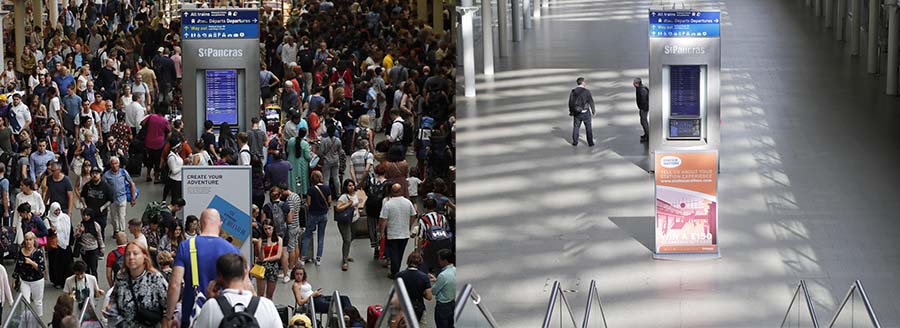Escaping Dystopia with VR
Let nobody say the leaders of the US tech industries are resoundingly compassionate or empathetic people. Oculus CTO John Carmack has outlined the conundrum in the past. “People react negatively to any talk of economics, but it is resource allocation. You have to make decisions about where things go. Economically, you can deliver a lot more value to a lot of people in the virtual sense.”
Abandon Hope, All Ye 99%
Actually, people react negatively when virtual resources are seen as more valuable to living, breathing biological humans than food, shelter, income, health or security. As much as any single calendar year can be, 2020 was a wakeup call to a global population, a clear signal that our grip on social order and relative human success is tenuous, at best.

The creation and maintaining of human happiness is essentially the removal of suffering from the human experience. While VR can offer remarkable relief for numerous conditions of suffering – social isolation, lack of mobility, even a dull romantic life – all its solutions are, simply put, virtual. Unlike Richard Branson’s (very much real) private island, VR users are still connected to the real world, its laws, and its restrictions. Yes, Branson still has to deal with gravity and aging, but most everything else is encountered on his terms. That’s a luxury very few can afford and VR cannot deliver.

Virtual tours of museums, gardens, parks, and monuments may have seen an increase in audience during the COVID crisis but can such an experience be considered equivalent to, say, taking in each flicker of paint thrown across Blue Poles by Jackson Pollock or standing amidst the spires of Gaudi’s Sagrada Família in Barcelona.
Our Own Devices
Reports show sales of VR devices and software increasing since the onset of the COVID-19 pandemic, suggesting a promising degree of integration into the now-commonplace work-from-home setups or a newfound interest in VR gaming. These developments and trends stem from the isolated, solitary nature of pandemic life but could be lighting a path to a more tech-dependent future, one in which all aspects of daily life will include a virtual component.
Increased mainstream traction for usually niche gaming properties and communities may have opened the door for a wide-ranging demographic prone to VR adoption, or it could simply be a new (mobile) console war taking shape. Using games and VR to reach a wide and diverse audience that includes those not usually included in mainstream demographics is still a process needing work. Adapting game controllers and devices for use by gamers with disabilities or chronic diseases has largely been left up to individuals, charities, and third-party startups. If VR and its associated tech are to see widespread adoption, such accessibility modifications and improvements must come (largely, if not totally) from the top. A commitment to making VR and AR available and useful to all who could potentially benefit from its use is essential.
A Slippery Slope

Facebook’s move to monitor all activity on its Oculus devices, and to pair said activity to a user’s personal Facebook account is already causing the social media giant major problems in Europe. Arguably Facebook and Oculus’s most daring move yet, this degree of pseudo-monopolization definitely leans toward a future of decreased consumer rights and increased corporate intrusion into our formerly private lives. It’s hard not to assume that the final nail in the coffin of traditional 2D media won’t simply be an uber-popular VR device release akin to the iPod; it will be the one uber-popular VR device that protects, as well as provides, for its users. All of its users.

